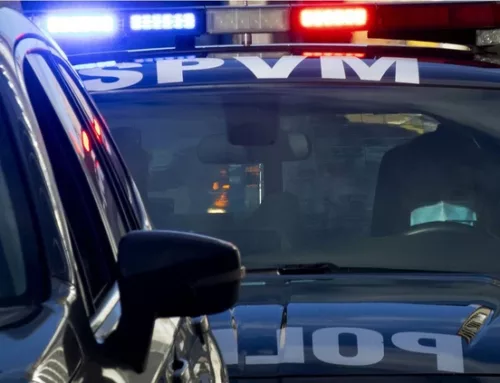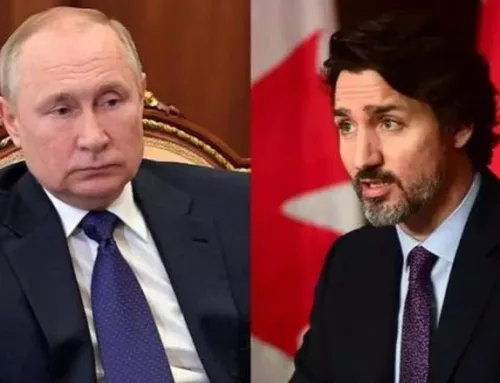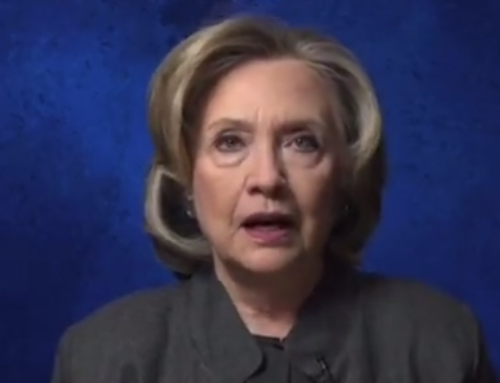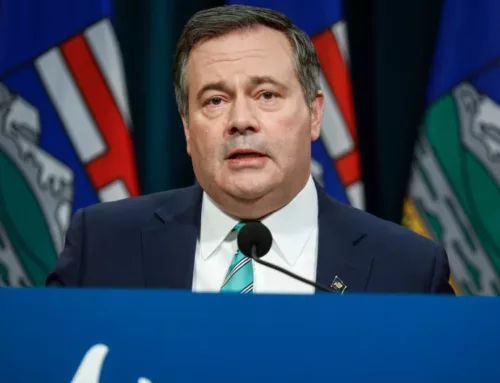By RACHAEL BUNYAN FOR MAILONLINE
July 14, 2021
-Daily Mail
The first Cuban protester has died after police allegedly opened fire on a peaceful demonstration while an anti-government reporter was arrested live on TV as the unrest continues on the Communist-run island.
Diubis Laurencio Tejeda, 36, died on Monday in a suburb of Havana during a clash between protesters and police, the Interior Ministry said.
The ministry said Tejeda was part of a group of protesters that had attacked a government facility in the La Guinera neighbourhood of Havana and did not say what caused his death.
But witnesses said security forces had responded with gunfire after some demonstrators had thrown rocks at them.
‘I think the Communists have lost control, they won’t have a solution to this situation,’ said resident Waldo Herrara, 49. ‘The people are tired of so much humiliation, so much repression.’
Meanwhile, social media activist Dina Stars was arrested live on television by Cuban security forces while speaking with Spain TV host Marta Flich on Tuesday about the protests.
Thousands of Cubans took to the streets of Cuba on Sunday while chanting ‘down with the dictatorship’ in the biggest anti-government demonstrations on the Communist-run island in decades.
Cubans are protesting over high prices and food shortages and other grievances against the government such as their handling of the pandemic.
The protests continued on Monday in the southern Havana suburb of La Guinera, where Tejeda died and several others, including members of the security forces, were hospitalized with injuries, according to state-run media.
It did not say what was the cause the death. No other deaths and injuries have been officially confirmed so far.
Hundreds had taken to streets in La Guinera, shouting slogans like ‘down with communism,’ and ‘freedom for the people of Cuba,’ according to two residents and video footage seen by Reuters.
Some started throwing rocks at security forces who eventually responded with gunfire, said Herrera.
A witness saw dozens of people carrying sticks departing La Guinera late Monday.
Activists say the government is using so-called rapid-reaction brigades – government-organized bands of civilian recruits – to counter protesters.
The protest in La Guinera was spearheaded by ‘antisocial and criminal elements’ that had tried to reach the police station with the aim of attacking its officials and damaging infrastructure, said the state-run Cuban News Agency.
When security forces stopped them, they vandalized homes, set containers on fire, and damaged the suburb’s electricity wiring, attacking officials with stones and other objects, the agency said.
On Tuesday, Stars – who has been vocal in her criticism of the government – was arrested while speaking about the protests from her home in Cuba.
During the interview, her friend is seen telling her that the police were waiting outside her home and forced her to end the interview.
‘Security is out there… I have to go out,’ Stars told host Marta Flich.
As Stars stands up, she said: ‘I make the government responsible for whatever happens to me.’
Stars returns moments later to the video interview to tell Flich that she is being taken by the police officers to the station. She was unsure whether she was being arrested but said she was being taken alone without her friends.
‘They’re taking me to {police HQ]. Live via Spain, I will hold the government responsible for whatever happens to me,’ she informed viewers.
Additional footage posted on Twitter appears to show Stars being escorted by two police officers into a vehicle outside her building.
Before her arrest, Stars tweeted that she had been called by the Interior Ministry to request a ‘meeting’ and when she refused, they said they would serve her ‘legal summons’.
She tweeted: ‘I have just been called on the phone by people from the MININT [Ministry of the Interior of the Republic of Cuba] who at the time summoned me to ‘meet’ I said no, they told me that they were going to give me a legal summons.
‘As soon as I get the summons I will attend with my head held high, I have nothing to hide. I keep you up to top.’
It is unclear whether Stars has been released by the police.
The activist’s alleged arrest comes after two days of protests in Cuba, which the government blame on the U.S.
On Sunday, Cubans marched on Havana’s Malecon promenade and elsewhere on the island to protest food shortages, restrictions on civil liberties, the government’s handling of the pandemic and soaring inflation, which some economists believe could hit 900 per cent this year.
The Mayor of Miami, Francis Suarez, said on Tuesday that US President Joe Biden should consider airstrikes on Cuba in support of Havana dissidents living in the United States.
Talk of possible American military action in Cuba prompted warnings Tuesaday from Iran, Russia and China.
In Moscow, Russian Deputy Foreign Minister Sergei Ryabkov said the Kremlin ‘stressed the inadmissibility of foreign interference and other destructive actions that are fraught with the destabilization in Cuba.’
A spokesperson for the Chinese Foreign Ministry in Beijing said ‘the US embargo is the root cause of Cuba’s shortage of medicines and energy.’
‘China firmly opposes foreign interference in Cuba’s internal affairs, firmly supports what Cuba has done in fighting COVID-19, improving people’s livelihood and upholding social stability, and firmly supports Cuba in exploring a development path suited to its national conditions,’ Chinese Foreign Ministry spokesperson Zhao Lijian said.
Iran, which has also faced economic sanctions imposed on it by Washington, echoed the sentiments of Russia and China.
‘In this situation, where the United States is primarily responsible for the many problems created for the Cuban people, it is trying to appear as a supporter of the Cuban protests and has tried to interfere in the internal affairs of this country in a blatant violation of international rules,’ Iranian Foreign Ministry spokesperson Saeed Khatibzadeh told reporters on Tuesday.
Suarez, the 43-year-old Miami-born lawyer whose father was the first Cuban-born mayor of the South Florida city, told Fox News on Tuesday that the option of military air strikes ‘has to be explored.’
‘What should be contemplated right now is a coalition of potential military action in Cuba, similar to what has happened… in both Republican and Democrat administrations,’ Suarez said.
He then referenced the 1989 American invasion of Panama under President George H.W. Bush and US-led NATO air strikes in Yugoslavia during the Kosovo War in 1999.
‘They deposed Noriega and that country had peaceful democracy for decades… And President Clinton in Kosovo, intervening in a humanitarian issue with air strikes.’
Suarez later told the Miami Herald that he was not advocating for air strikes or any other form of military intervention, though he did say that policymakers should consider using the military in some capacity.
‘I’m not a military expert,’ he said.
‘I’m not going to sit here and opine on what kind of military intervention should be used.’
Relatives and friends of those detained during and after Sunday’s historic demonstrations engaged in a desperate search on Tuesday for news on their whereabouts.
‘They took him from the house handcuffed and beaten, without a shirt, without a mask,’ said a 50-year-old woman who did not wish to give her name, enquiring about her 21-year-old son at a police station in the capital.
‘They took many from the neighborhood, young and old,’ she said, before leaving empty-handed.
Cuba’s San Isidro free speech protest movement published late on Monday a list on Twitter of 144 people held or reported as disappeared after thousands of Cubans took to the streets in dozens of cities and towns in a spontaneous outburst of public anger.
‘They took my daughter yesterday (Monday) and I have no news of her,’ said a woman at a Havana police station.
A young man said his brother, 25, was taken from a neighbor’s house. ‘They gave him a tremendous blow, unjustly, and took him away,’ he said.
A police official told worried family members that those arrested were taken to different detention centers, without providing details of who went where.
Julie Chung, acting assistant secretary in the US State Department’s Bureau for Western Hemisphere affairs, called in a tweet Monday for the ‘immediate release’ of the detainees.
‘Violence and detentions of Cuban protesters & disappearances of independent activists… remind us that Cubans pay dearly for freedom and dignity,’ she said.
Those held included dissident Guillermo Farinas, former political prisoner Jose Daniel Ferrer and artist Luis Manuel Otero Alcantara.
Among those arrested was theater director Yunior Garcia, a leader of the 27N movement which was born after a much smaller protest by members of the art community on November 27 last year to demand free speech.
Garcia said on Facebook that he and a group of friends were beaten ‘and forcefully dragged and thrown into a truck.’
‘We were treated like rubbish,’ he said, adding they were taken to a detention center in Havana where they saw ‘dozens of young people’ arrive.
He was released on Monday afternoon.
Also arrested on Monday was Camila Acosta, a Cuban correspondent for the Spanish newspaper ABC, its foreign editor said.
Spain’s foreign ministry on Tuesday urged the Cuban authorities to respect the right to protest and demanded that Cuba ‘immediately’ release Acosta.
Havana still had a heavy police presence Tuesday, with officers particularly guarding key points such as the Malecon promenade and the Capitol. Internet and cellphone data service continued to be disrupted.
There were no reports of new protests, which the government has sought to blame on Cuban Americans using social media to instigate unrest in Cuba.
Cuban President Miguel Diaz-Canel on Monday accused Cuban Americans of using social media to spur the rare outpouring of weekend protests. Protesters in Cuba had also been using social media and their phones to join together and post pictures of what was happening.
In response, the Communist authorities were blocking Facebook, WhatsApp, Instagram and Telegram, said Alp Toker, director of Netblocks, a London-based internet monitoring company.
In the capital, there have been regular and atypical mobile internet outages since Sunday, according to witnesses.
‘The pattern of restrictions observed in Cuba indicate an ongoing crackdown on messaging platforms used to organize and share news of protests in real-time,’ said Toker. ‘At the same time, some connectivity is preserved to maintain a semblance of normality.’
Facebook, which owns Instagram and WhatsApp, said that it was concerned about its services being restricted in Cuba, in a statement to Reuters late on Tuesday.
‘We oppose shutdowns, throttling, and other disruptions of the internet that limit the debate of our community. We hope connectivity will be restored as soon as possible so that Cubans can communicate with family and friends,’ said Joe Osborne, a Facebook spokesperson.
Asked whether the government was intentionally restricting internet connections, Foreign Minister Bruno Rodriguez told a news briefing the situation was ‘complicated.’ He said power outages could impact telecommunications services and ‘Cuba would never renounce the right to defend itself.’
Telegram did not immediately respond to a request for comment. Twitter said it found no blocking of its service.
‘Our weapon is the internet. If they take away the internet we are unarmed,’ said Havana resident Gino Ocumares, as he tried but failed to connect to the web at a government Wi-Fi hotspot. ‘The government does not want people to see the truth.’
State-run media also reported on Tuesday that Raul Castro, who stepped down as head of the ruling Cuban Communist Party in April, attended a meeting on Sunday of the political bureau to address the ‘provocations.’
Diaz-Canel said in April he would continue to consult Castro on matters of utmost importance.
‘On July 11, there were riots, there were disorders on a very limited scale, opportunistically taking advantage of the difficult conditions in which we Cubans are living today,’ Rodriguez said Tuesday, adding that government experts had found evidence of outsiders using sophisticated equipment to widely broadcast alarmist and inciting messages over social media.
But, Rodriguez said, ‘On July 11, there was no social explosion in Cuba. There was not because of the will of our people and because of the support of our people for the revolution and its government.’
The Cuban Bishops Conference said in a statement it was worried that the response to protests over legitimate concerns would be ‘immobilism’ rather than an attempt to resolve them, and even a counterproductive hardening of positions.
‘We understand that the government has responsibilities and has tried to take measures to alleviate the aforementioned difficulties, but we also understand that the people have the right to express their needs, desires and hopes,’ they said in a statement.
Reaction to the protest in Latin America split along ideological lines, with Mexico’s president blaming the U.S. embargo for fomenting the unrest, while Chile and Peru urged the government to allow pro-democracy protests.
President Joe Biden said Monday that the United States ‘stands firmly with the people of Cuba as they assert their universal rights.’
State Department spokesman Ned Price called on the Havana government to open all means of communication, both online and offline.
‘Shutting down technology, shutting down information pathways – that does nothing to address the legitimate needs and aspirations of the Cuban people,’ Price told a news briefing on Tuesday.
The last major protests, and the first since the revolution that brought Fidel Castro to power in 1959, were in 1994.
Those were also against economic hardship but were limited to the capital and quickly put down by police.
c. DAILY MAIL




